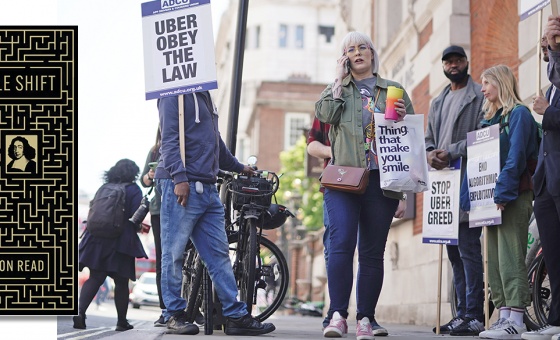This is the last article you can read this month
You can read more article this month
You can read more articles this month
Sorry your limit is up for this month
Reset on:
Please help support the Morning Star by subscribing here
WHEN trying to understand the current situation in Scotland, it is important to recognise there is no strong left.
It’s easy to have a romantic view with Keir Hardie, Mary Barbour and the rent strikes, Jimmy Maxton and the Red Clydesiders, the Upper Clyde Shipworkers — but that isn’t the Scotland of today.
The Scottish Labour Party played its role in sapping the radicalism out of Scottish politics.
The SNP government is not social democratic in the sense of promoting a mixed economy and advocating tough regulation. It accepts the neoliberal tenets of how an economy should be run.
It may have a less aggressive rhetoric than Tory neoliberals, but its policies do not challenge the financial world order. That shouldn’t surprise us as the SNP is a broad alliance across the political spectrum.
Unfortunately there is no significant “indy left.” There are some impressive individual advocates but there is no effective movement. As things stand, the demand for independence isn’t a route to a radical Scotland.
Anyone hopeful that the Greens’ incorporation into the Scottish government will make a difference should note the concerns voiced by Scottish TUC general secretary Roz Foyer that while it “contains welcome gains, it fails to deal with fundamental questions on ownership that are crucial to achieving a real just transition.”
We do not have a left-wing Labour Party or trade union movement in Scotland. Even the trade unions affiliated to Labour have to be aware that a significant percentage of their members do not support Labour and they walk a tightrope to keep their affiliations in place.
So, sadly, the left is not strong in Scotland and reviving it is hampered while the independence debate is the main issue, to the detriment of mobilising around the many other concerns facing working people in Scotland. That is the political terrain we are stuck in.
In a different political climate the SNP would be struggling. After the torrid events pre-election, it has faced several major problems.
NHS Scotland is struggling to meet demand. The ambulance service is now formally in a crisis, with the fire brigade, the army and Red Cross being drafted in.
The Health Minister, Humza Yusaf, says he “will be demanding answers” as if it were someone else’s fault.
An inquiry has just started into the deaths of children due to contaminated water in a new hospital in Glasgow. Nicola Sturgeon said it is “unacceptable.”
She says the number of drug deaths in Glasgow is “shameful.” Along with poor housing, child poverty, failing public transport, high levels of pollution, loss of manufacturing jobs — you can almost see her looking around demanding to know who is to blame.
None of these issues have been addressed during her time as first minister.
Few believe a referendum is imminent — but keeping that pot boiling sucks the class politics out of Scottish life.
We are not even discussing what an independent Scotland would look like, except to say it will “be all it could be” — whatever that means. Instead we are discussing when and how we can have a referendum.
The SNP claims the May election result is a victory for calling another independence referendum.
But it remains the case that polls show the country is still split 50-50 between Yes and No.
Left supporters of independence often argue that if we get independence out of the way, we can then get on with the real politics.
It is not a good basis for a newly independent nation to have half its population opposing it — but arguing for the status quo is unacceptable.
How can we build a socialist challenge when many working people decide their vote on the issue of independence?
We should instead ask: which of the options can help challenge the capitalist order? If the choice is the Growth Commission or the status quo, the answer is neither.
That is why the Red Paper Collective argues for a third option. Rather than being sucked into either the Yes or No camp we should view the issue from a socialist perspective.
There is an alternative that could prevent years of division and that is to accept that Scotland as a sovereign nation must have the right to hold a referendum, but it should not be a Yes-No choice.
Rather, it should give people the democratic right to vote for fundamental change that doesn’t require independence.
This would be a radical programme that challenges existing structures and mobilises for a fair and equal society by radical application of new and existing powers.
This is what a new book from the Red Paper Collective describes in detail. It explains how better use of existing powers and some new powers could make radical changes.
The group believes that one way to tackle the problem is to have a clear agreement now that should there be a future referendum it will have three options — the status quo, radical change that does not require independence and independence.
Forcing voters to choose between two options, neither of which move us in a progressive direction, is blatantly undemocratic and unfair.
The Red Paper Collective will participate in a coalition of socialists to define that third option.
It will work with politicians, activists and trade unionists who accept there is a clear democratic case for such a choice to be offered in any future referendum.
Pauline Bryan is convener of the Red Paper Collective and a Labour peer.
Scottish Independence: There is a Third Option by the Red Paper Collective costs £5 — order from local bookshops or by email from: [email protected].











